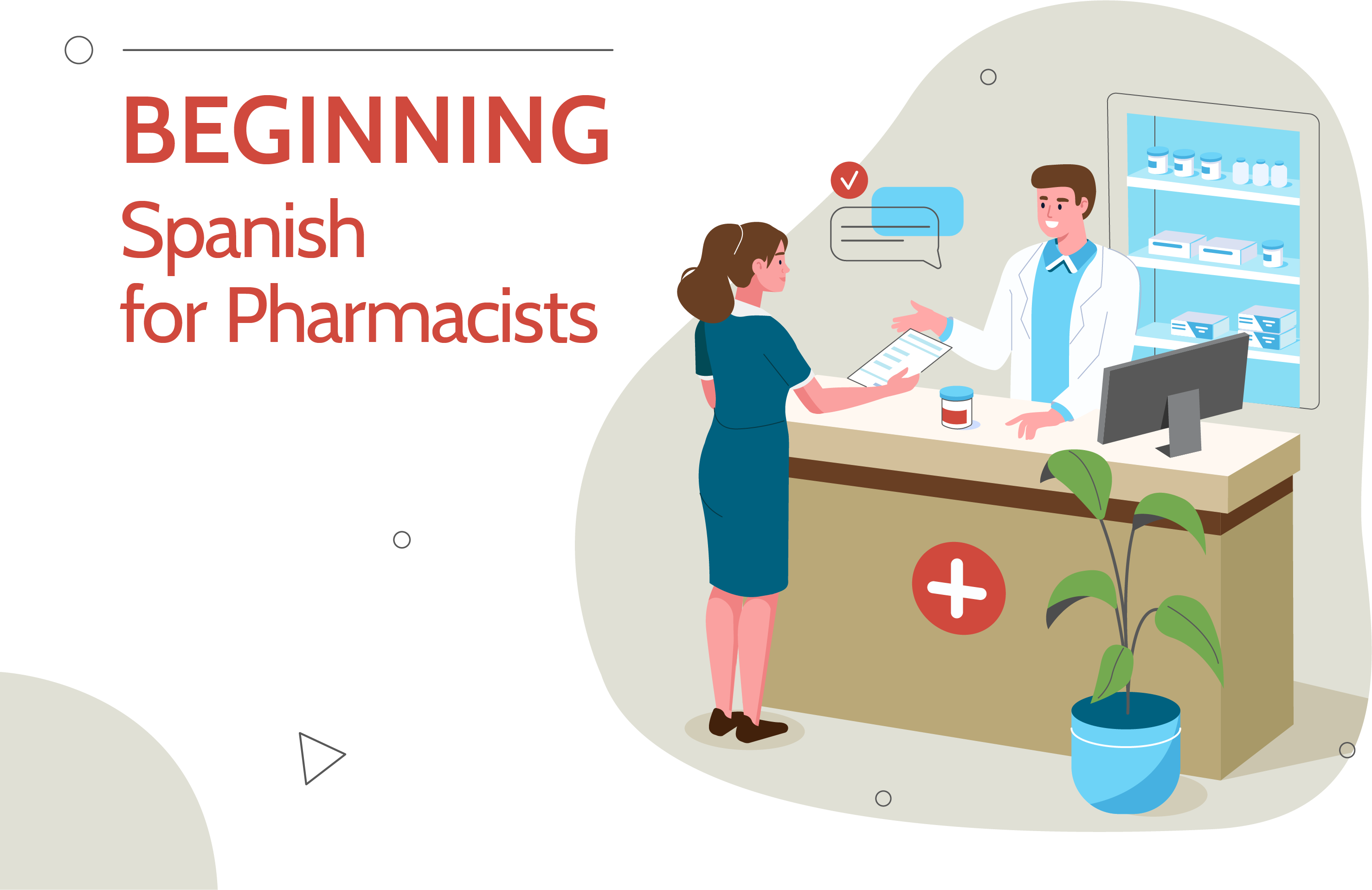This Beginning Spanish for pharmacists course is an opportunity to become comfortable with conversational Spanish and medical vocabulary in various pharmacy and clinical contexts.
Language learning is both academic and experiential. You will need to memorize new vocabulary, think about how it pulls together to form a complete thought, and PRACTICE!
Therefore, each class session will include a combination of new learning, and lots of practice! The best way to approach it is to be relaxed and not care about making mistakes with the language. So, be ready to relax, experiment, and LEARN SPANISH!
– Each week of the semester, a new lesson will open up for you to watch the instructional videos, take notes, and build your Spanish vocabulary. You will have several days to watch the video lessons and learn the related vocabulary & grammar concepts.
– Once a week, you will meet online with your classmates for a live practice session on the Zoom video conferencing platform. Your instructor will email you weekly with login details for our live online practice sessions via Zoom.
– You can use any device you like to login to the zoom practice sessions (computer, tablet, mobile phone). Whichever device you choose to use should be equipped with a video camera and earphones/microphones for reducing background noise on the conference. Get Zoom setup on your device.
1. Study little by little throughout the week in between practice sessions. Don’t try and cram the information the day or morning before your scheduled practice session. Do your best to complete the lesson content at latest 2 days before your practice session and review your notes the day before your practice session.
2. Download & Print the lesson notes & actually take notes on them during the lesson videos. The more you physically write this content out, the easier it is to learn it.
3. Give special attention to the vocabulary delivered throughout this course. Study it Span>Eng & Eng>Span before you move on. Use quizlet or write your own flashcards out.
4. ALWAYS attend the live practice sessions whether you finished the lesson or not. Academic knowledge of a language is pretty useless if you’ve never taken the time to practice it.
5. Study for your quizzes like any other test you would take – that will allow you to focus on the actual questions and tasks to complete during the quiz instead of being distracted by not knowing certain vocabulary, etc.

